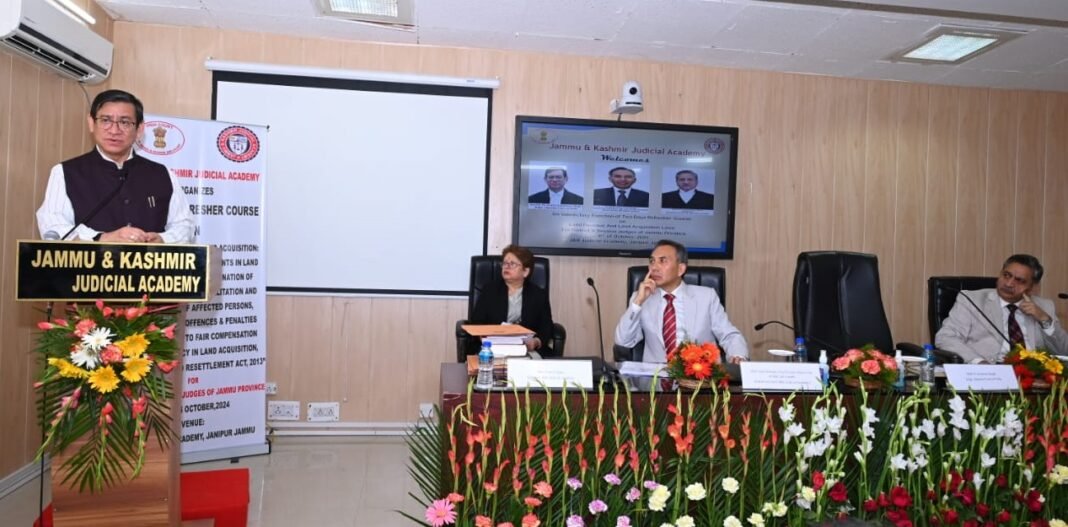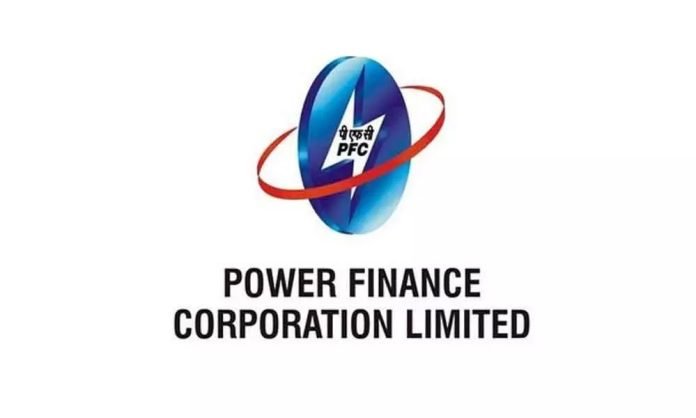JAMMU, OCTOBER 6: The two day refresher course on “Land Revenue Laws, Land Acquisition: Land Reforms and Amendments in Land Acquisition Laws, Procedural Fairness and Natural Justice, Determination of Compensation and Rehabilitation and Resettlement of Affected Persons, Adjudication of Offences & Penalties under the Right to Fair Compensation and Transparency in Land Acquisition, Rehabilitation and Resettlement Act, 2013” organized by the J&K Judicial Academy for District and Session Judges of Jammu province concluded here today.The event was organized under the patronage of Chief Justice, High Court of Jammu & Kashmir and Ladakh (Patron-in-Chief, J&K Judicial Academy), Justice Tashi Rabstan, guidance of Chairperson, Governing Committee for J&K Judicial Academy and members of Governing Committee for J&K Judicial Academy at J&K Judicial Academy, Janipur, Jammu.On the first day, the sessions were conducted by Sanjay Parihar, member J&K Special Tribunal, who explained about the Land Revenue Laws and the recent amendments to Land Acquisition Laws. He said that laws are at the heart of the legal framework that governs land disputes, acquisitions, and compensation. He delved into the critical principles of procedural fairness and natural justice in the context of land acquisition. He added that these principles are essential to ensure that the process of land acquisition is not only legally compliant but also morally and ethically sound. He further discussed the determination of compensation and the rehabilitation and resettlement of affected persons, a key element of the 2013 Act.On the second day, the sessions were conducted by R.S. Thakur, Senior Advocate, High Court of J&K and Ladakh, who provided insights into how courts can ensure that compensation is just, transparent, and compliant with the legal standards. The learned Resource Person also addressed the adjudication of offenses and penalties under the Act, ensuring that there is accountability and that the rights of affected persons are upheld.During the valedictory function, Justice N. Kotiswar Singh, Judge, Supreme Court of India, delivered the valedictory address and shared his experience as the judge of Supreme Court of India. He underscored that the laws governing land ownership, acquisition, and compensation such as the Right to Fair Compensation and Transparency in Land Acquisition, Rehabilitation, and Resettlement Act, 2013 are crucial in ensuring that while the state fulfils its developmental goals, the rights of landowners and affected persons are safeguarded. Justice Kotiswar Singh appreciated the role of Judges in the judiciary saying that as custodians of justice, we must ensure that development and progress do not come at the cost of displacement, disenfranchisement, or the deprivation of fundamental rights.In his special address, Chief Justice, Justice Tashi Rabstan, reiterated that Land revenue laws and procedures have historically played a critical role in shaping both the economic and social landscapes of regions, especially those like Jammu & Kashmir and Ladakh, where the relationship between land, resources, and people is deeply intertwined. He stated that the Land Revenue Act in Jammu & Kashmir, historically, has functioned as a bulwark protecting the local populace from external pressures. The Chief Justice underscored that in the aftermath of the abrogation, the judiciary has to play an increasingly active role in ensuring that the changes brought by the new laws do not disproportionately affect the vulnerable sections of society—particularly farmers, rural communities, and tribal groups. He advised that as judges and officers of the court, our primary responsibility is to ensure that the rights of these communities are not overridden by large-scale developmental projects or national interests, without due consideration of their traditional rights and unique circumstances.While delivering the welcome address, Justice Sanjeev Kumar, Chairperson, Governing Committee for J&K Judicial Academy, discussed the complexities and challenges associated with Land Revenue laws, particularly in balancing public welfare with the fundamental rights of individuals. He underlined that this program was not only an opportunity to enhance our knowledge but also to ensure that the judgments we deliver are informed, just, and rooted in the principles of natural justice.Sonia Gupta, Director J&K Judicial Academy, conducted the proceedings for the two day Refresher Course and presented the vote of thanks. All the sessions remained very interactive during which all the participants actively participated and shared their experiences, difficulties and also discussed various aspects of the subject topics. They also raised a number of queries which were answered satisfactorily by the worthy resource person.



